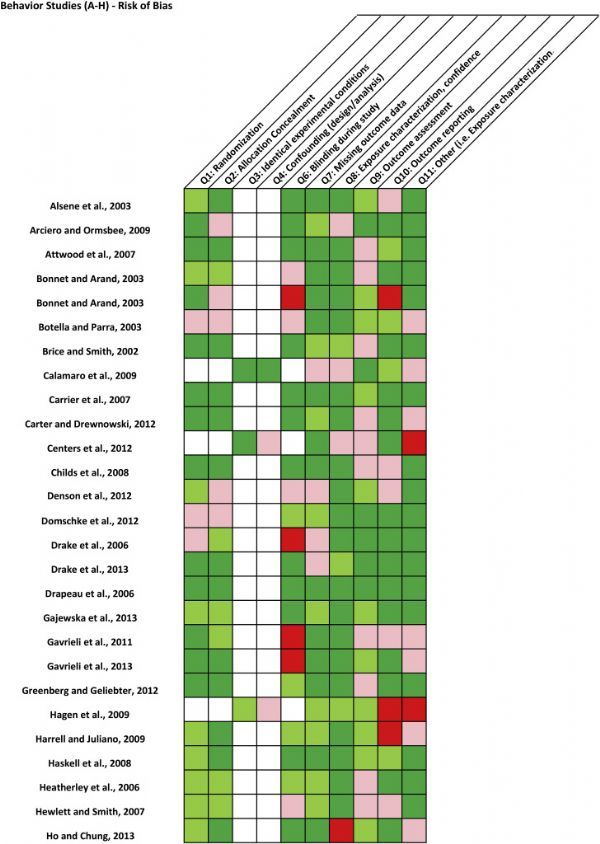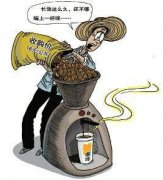How much caffeine is safe to eat every day? See what the scientists say!

April 23, 2017 / Biological Valley BIOON /-A rigorous new scientific systematic review of caffeine safety confirms the results of the widely cited Canadian Health Department Literature Review (2003), which concluded that adult ≤ 400mg / day caffeine intake was not associated with serious health side effects (that is, four cups of coffee per day). Ninety percent of Americans typically consume less than this amount, including 300mg / day of ≤ for pregnant women and 2.5mg / kg of ≤ for children and adolescents. The findings were recently published in the journal Food and Chemical Toxicology and were presented at a recent conference on experimental biology in Chicago.
Since 2003, more than 10000 papers related to caffeine have been published. However, a strong, transparent and systematic assessment of health effects associated with caffeine consumption has not been found in the peer-reviewed literature. As a result, the International Society for Life Sciences of North America (IL SI) decided to review data on relevant research from 2001 to 2015.
The researchers who reviewed the study concluded that caffeine intake among healthy caffeine consumers at previously determined levels of caffeine intake was not associated with significant adverse reactions. This suggests that researchers need to do further research among unhealthy people, sensitive people and individuals.
"the evidence provided in this systematic review further deepens the understanding of the effects of caffeine on human health. "said Dr. Eric Hentges, executive director of ILSI in North America. In addition, this review also provides the research community with a large amount of data and valuable evidence to support the development and implementation of future research on caffeine safety that affects public health. Full transparency in data sharing will encourage other researchers to participate in this study. "
Using the systematic Review criteria of the Institute of Medicine of the National Academy of Sciences, the researchers carefully analyzed more than 740 studies and assessed five caffeine-related adverse health outcomes in acute toxicity, bone / calcium, cardiovascular, behavior, and reproduction and development. In line with IOM standards, the research team consists of a researcher from Tox Strategies, a private consulting firm that provides toxicology and risk assessment for private and public organizations, and seven members with a variety of expertise from the Scientific Advisory Board (SAB).
All data related to literature review and classification are available at the health care research and quality management agency system review data storage center, and each health outcome operation is available in the PROSPERO registration evaluation system. (biological Valley Bioon.com)
Source of the original text:
Daniele Wikoff, Brian T. Welsh, Rayetta Henderson et al.Systematic review of the potential adverse effects of caffeine consumption in healthy adults,pregnant women, adolescents, and children. Food and Chemical Toxicology. Doi.org/10.1016/j.fct.2017.04.002
Important Notice :
前街咖啡 FrontStreet Coffee has moved to new addredd:
FrontStreet Coffee Address: 315,Donghua East Road,GuangZhou
Tel:020 38364473
- Prev

Unfair coffee
A cup of coffee costing tens of yuan is common in metropolises. However, in Yunnan, the main coffee producing area in China, the purchase price of coffee beans is about 15 yuan per kilogram. According to the figures released by the Yunnan Coffee Association, during the 2015-2016 harvest season, the average price of a kilogram of coffee beans purchased by enterprises from curry farmers is between 13 yuan and 14 yuan, and the market trade price is maintained at around 16 yuan. Coffee production in Yunnan
- Next

Theme coffee joins regional protection: one shop in one city is a wise move for long-term peace and stability.
At present, there are some brands in the market. In order to maximize the interests of enterprises, they generally adopt smaller regional protection for brand franchisees, and some even limit the protection distance to 500m or 1000 meters. as a result, one store has good business and N more stores have followed the trend. It seems that brand awareness has suddenly increased, but brand stores compete viciously with each other, opening more quickly, dying faster, and the life of the brand.
Related
- What is the difference between Indonesian Sumatra Mantinin coffee and gold Mantinin? How to distinguish between real and fake golden Mantelin coffee?
- What does bypass mean in coffee? Why can hand-brewed coffee and water make it better?
- Unexpected! Ruixing Telunsu lattes use a smoothie machine to foam milk?!
- % Arabia's first store in Henan opens into the village?! Netizen: Thought it was P's
- Does an authentic standard mocha coffee recipe use chocolate sauce or powder? Mocha Latte/Dirty Coffee/Salty Mocha Coffee Recipe Share!
- What is the difference between Vietnam egg coffee and Norway egg coffee? Hand-brewed single product coffee filter paper filter cloth filter flat solution!
- What is the difference between sun-cured and honey-treated coffee? What are the differences in the flavor characteristics of sun-honey coffee?
- How to make Italian latte! How much milk does a standard latte use/what should the ratio of coffee to milk be?
- How to make butter American/butter latte/butter Dirty coffee? Is hand-brewed coffee good with butter?
- Is Dirty the cold version of Australian White? What is the difference between dirty coffee/decent coffee and Australian white espresso?

